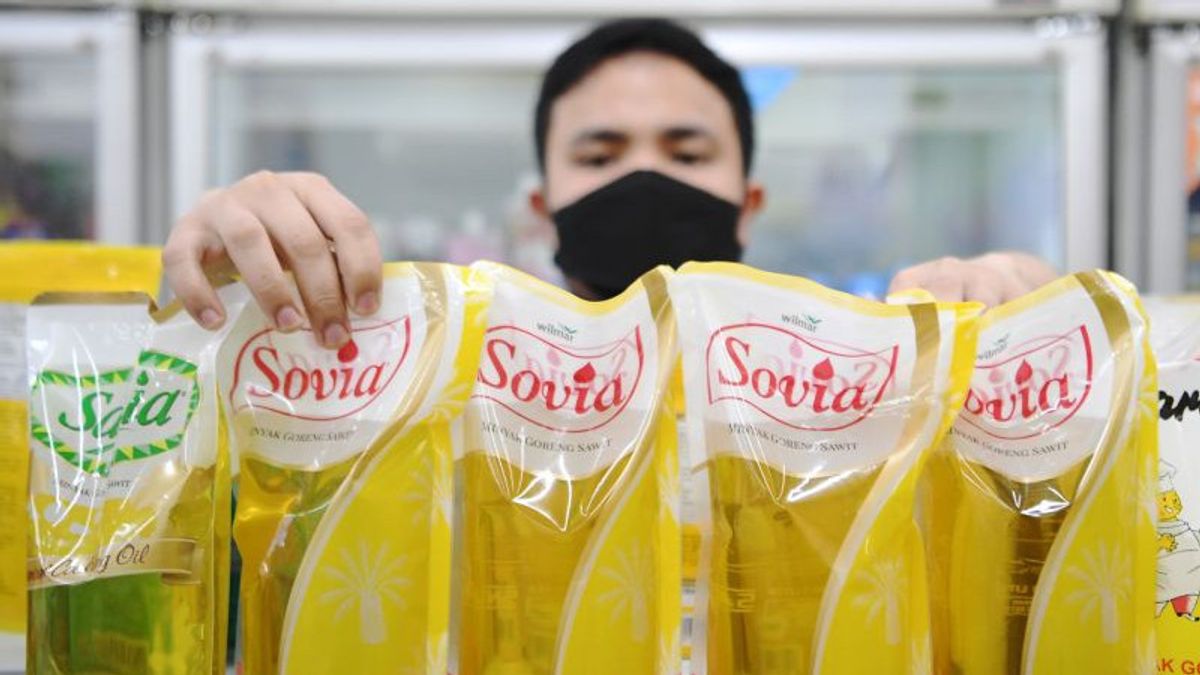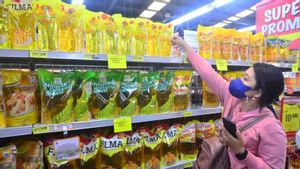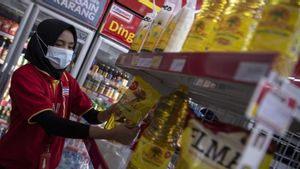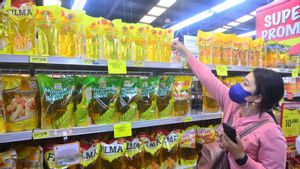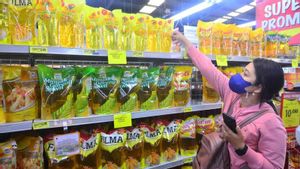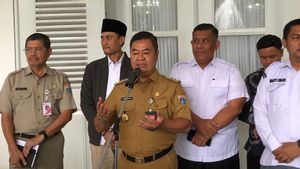The polemic regarding government debt to retail entrepreneurs related to payments for the difference in cooking oil prices, aka the one-price program in 2022, has not yet been paid until now.
It is known that the debt that must be paid by the government to Aprindo reached Rp. 344 billion.
The retail company that participated in the Rafaction program in 2022 consisted of 31 companies that owned around 45,000 stores.
With the problem not yet resolved, the Indonesian Retail Entrepreneurs Association (Aprindo) also admitted that it was angry because it had not yet received certainty about the payment of the price difference from the government or in this case the Ministry of Trade (Kemendag).
Chairman of Aprindo Roy Nicholas Mandey revealed that retail entrepreneurs agreed to cut bills, reduce the purchase of cooking oil, stop buying cooking oil from producers until the last step would sue through the State Administrative Court (PTUN).
"So, after our meeting (meeting) with 31 members last week, we want to convey what the follow-up will be like. There will be a cut in the target for distributors, there will be a cut in bills," Roy said at a press conference in Jakarta, Friday, August 18.
"Then, reduce the purchase of cooking oil if the completion of the raid has not been completed from the retail company. This is the company's (will), yes, not Aprindo," he added.
However, Roy admitted that he did not know when the retail company would cut bills to stop buying cooking oil from producers.
Even so, he said, his party could no longer stem the unrest of entrepreneurs and these steps depended on the decisions of their respective companies.
"What I want to say is that at this time Aprindo for points 2, 3, 4, cannot stem it. We cannot detain members. In fact, the retailer stopped buying cooking oil. Not Aprindo," he said.
If all the points are properly done, it can greatly affect cooking oil stocks in retail.
Roy said, if retail cuts bills from distributors, the reason is in exchange for price differences that have not been paid by the Ministry of Trade.
This is done because the flow of payment of the Rafaction is through producers.
"For example, cutting bills, definitely not agreeing from the producer. Of course, there is an aspect of the problem, maybe the producer stops, 'pay this bill first, right, not the faction' he stops supply. Well, if you stop supply, is there no cooking oil in the store? We don't know," he said.
"If the producer says this, right, the bill has entered the agreement, it must be paid, but the retailer 'but we have a fee to pay you, you bail out first how do we cut the bill as between you'. So we don't know," explained Roy.
In Roy's presentation, there will be five steps that will be taken by Aprindo and retail entrepreneurs, if the Rfaction debt is not paid in the near future.
First, Aprindo will follow up through the Kemenkopolhukam office to the Ministry of Trade.
Second, cutting bills to distributors/suppliers of cooking oil (Migor) by retailers to migrant distributors.
Third, reduce the purchase of Migor if the completion of the ratification has not been completed from the retailer to the Migor distributor. Fourth, the termination of the purchase of oil and land fires by the retailer company to the Migor distributor when there is absolutely no certainty.
Finally or the fifth attempt is a lawsuit to the Administrative Court through the power of the retailer company to Aprindo.
"So, at this time Aprindo wants to state that we are no longer stemming or restraining treatment for companies that will have an impact on stock of goods, any situation, Aprindo can no longer stop," he concluded.
SEE ALSO:
For your information, the cost of the cafaction is cutting (reducing) the price of goods submitted because the quality is lower than for example or because they have been damaged in their shipments.
This can also happen if there is government intervention to lower prices below the purchase price.
Based on Aprindo data as of January 31, 2022, the bill for the fraction of cooking oil is more than Rp. 300 billion from national and local network retailers throughout Indonesia.
The English, Chinese, Japanese, Arabic, and French versions are automatically generated by the AI. So there may still be inaccuracies in translating, please always see Indonesian as our main language. (system supported by DigitalSiber.id)
